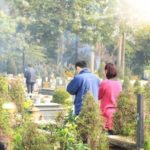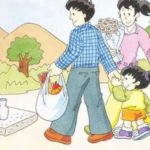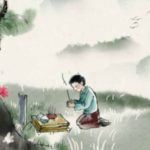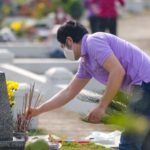The Qingming Festival is a traditional Vietnamese holiday that embodies the profound respect and reverence for ancestors that is deeply ingrained in Vietnamese culture. This festival, also known as the Tomb-Sweeping Festival, holds great significance for the Vietnamese people, serving as a reminder to honor and pay homage to their departed loved ones.
1 When is the Qingming Festival in 2024?
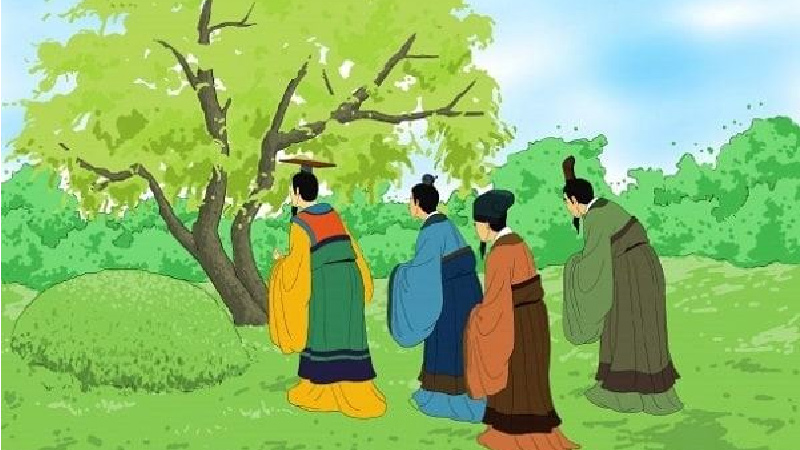 On this holiday, descendants gather to visit the tombs of their ancestors.
On this holiday, descendants gather to visit the tombs of their ancestors.
The Qingming Festival does not have a fixed date and usually falls between April 4th and 5th (after the Spring Equinox) and ends around April 20th to 21st (the start of the Grain Rain solar term) in the Gregorian calendar. During this festival, descendants converge on their ancestral tombs, engaging in activities such as cleaning and offering sacrifices to their ancestors, seeking their blessings for good health and peace.
In 2024, the Qingming Festival will be observed on Thursday, April 4th, 2024, which corresponds to the 26th of February in the lunar calendar.
2 Origin and Significance of the Qingming Festival
Origin of the Qingming Festival
According to folk culture researcher Nguyen Hung Vi, the Qingming Festival is one of the 24 solar terms in the traditional East Asian calendars.
Literally translated, “qing” means clear, and “ming” means bright. Thus, the Qingming Festival signifies a time when the weather is clear and bright. It is the fifth solar term, occurring 45 days after the Spring Equinox and 105 days after the Winter Solstice.
The Qingming Festival spans approximately 15 to 16 days, with the first day being the actual festival. In 2024, the Qingming Festival will fall on April 4th in the Gregorian calendar (26th of February in the lunar calendar), right after the Spring Equinox, and will last until April 20th.
Apart from the Qingming Festival, there is also the Dap Thanh Festival or the Grass-Treading Festival, which originated in China and is celebrated in early March. During this festival, young men and women dress up and go out to enjoy the spring scenery. Although this festival is no longer widely celebrated in Vietnam, it is immortalized in the famous poem “The Tale of Kieu” by the renowned poet Nguyen Du:
“In the clear and bright third month,
It’s time to sweep the tombs and tread the grass.
Near and far, everyone is excited,
Sisters and brothers dress up to enjoy the spring.
Dapper gentlemen and beautiful ladies,
Horses and carriages, silks and satins fill the streets.”
Significance of the Qingming Festival
For the Vietnamese, the Qingming Festival is an opportunity to honor their ancestors and reconnect with their roots. Regardless of how far they may have ventured for work or other pursuits, families reunite during this festival to pay respects to their ancestors by cleaning their tombs and offering sacrifices. The act of cleaning the tombs symbolizes the descendants’ reverence and devotion to their forebears.
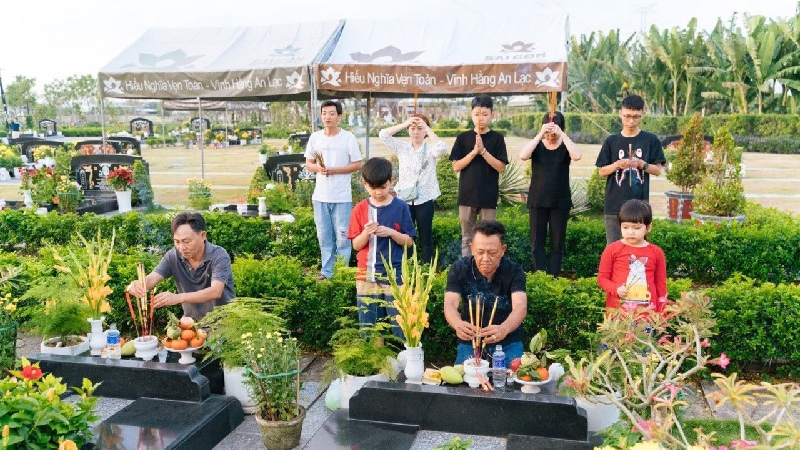
During the Qingming Festival, cemeteries buzz with activity as people flock to pay their respects to their departed loved ones. This festival embodies the beautiful Vietnamese virtue of “remembering the source when drinking water,” emphasizing the importance of gratitude and respect for one’s ancestors. As Dr. Nguyen Anh Hong, Head of the Department of Culture and Development at the Academy of Journalism and Propaganda, explains, the act of tomb-sweeping and offering sacrifices to ancestors is a way for people to express their gratitude, respect, and reverence for their departed family members.
Moreover, people also take the time to tend to neglected and ownerless graves, demonstrating their compassion and the virtue of mutual support and assistance.
Is the Qingming Festival the same as the Cold Food Festival?
According to TS.KTS Vu The Khanh, although the Qingming Festival and the Cold Food Festival sometimes overlap in date, their origins and meanings are distinct.
The Qingming Festival marks the first day of the Qingming solar term, which is one of the 24 solar terms in the traditional calendar. It spans from April 4th to 5th until April 20th to 21st annually.
On the other hand, the Cold Food Festival originates from an ancient Chinese story commemorating the loyalty and sacrifice of Jie Zitui to Jin Wen Gong. This festival is observed from the 3rd to the 5th of the third lunar month each year.
3 What Do Vietnamese People Do During the Qingming Festival?
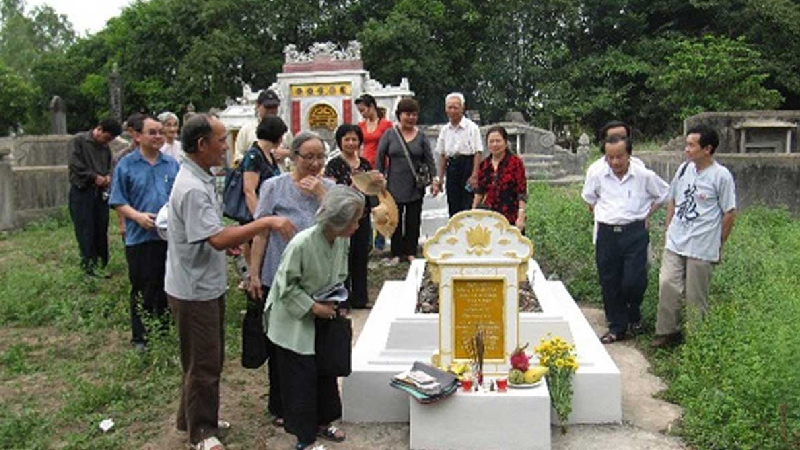 What to Do During the Qingming Festival
What to Do During the Qingming Festival
Tomb-Sweeping during the Qingming Festival
For the Vietnamese, the Qingming Festival is a time to commemorate and pay respects to their ancestors. Descendants prepare offerings and burn incense at the tombs of their departed loved ones, followed by cleaning and tidying up the tomb area. They then offer prayers for their ancestors’ blessings of good health and peace. After the tomb-sweeping rituals, family members return home to set up an ancestral altar and share a meal together, strengthening their familial bonds.
Those who live far from their ancestral homes can still participate in the tomb-sweeping traditions by visiting and tending to the graves of their ancestors at any time during the Qingming Festival period.
What to Offer during the Qingming Festival?
In addition to tomb-sweeping, preparing and offering sacrifices is another crucial aspect of the Qingming Festival. Family members go to the market to purchase ingredients for the sacrificial offerings, which may vary depending on local customs and traditions. However, the essence remains the same: a simple meal shared with the ancestors rather than an extravagant feast.
4 Rituals and Offerings for the Qingming Festival
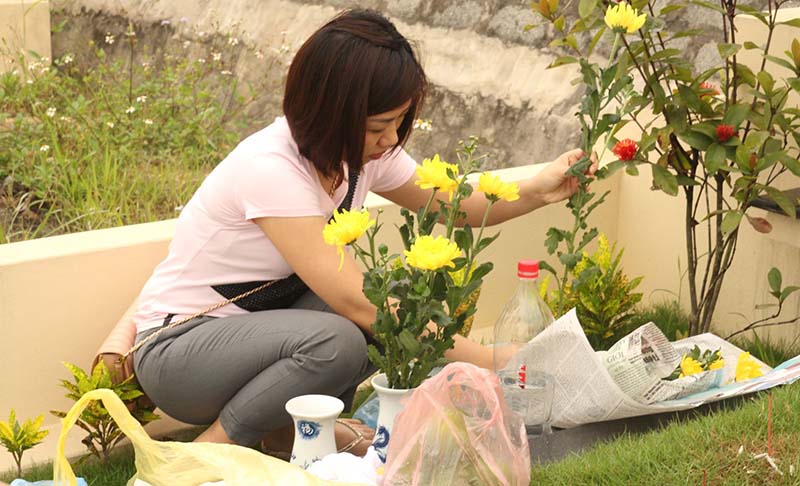 Rituals and Offerings for the Qingming Festival
Rituals and Offerings for the Qingming Festival
Typical offerings include: Meat, chicken, alcohol, and sausages.
+ A full altar with sticky rice, chicken, bamboo shoots soup, and stir-fried glass noodles.
+ Incense, flowers, candles, betel leaves and areca nuts, ceremonial paper money, and fruits.
Offerings at the Tomb
When performing rituals at the tomb, it is customary to arrange the offerings separately, with fruits and ceremonial paper money placed together and the meat dishes set apart. Next, light the incense and candles, preferably one or three sticks of incense to avoid bad luck, and bow three times to show respect to the Earth God before inviting the ancestors’ spirits to join the ceremony. After the incense has burned down to about two-thirds, you may proceed to thank the spirits, burn the ceremonial paper offerings, collect blessings, and return home.
Offerings at Home
When performing rituals at home, keep in mind the following:
+ Clean the house, especially the ancestral altar, to create a welcoming atmosphere.
+ Prepare the offerings in advance so that they can be presented to the ancestors after the rituals at the tomb are completed.
+ Light incense and offer prayers with sincerity and reverence to demonstrate your respect for your ancestors.
For more information: 2024 rituals and offerings at the tomb and at home
5 Things to Do and Avoid During the Qingming Festival
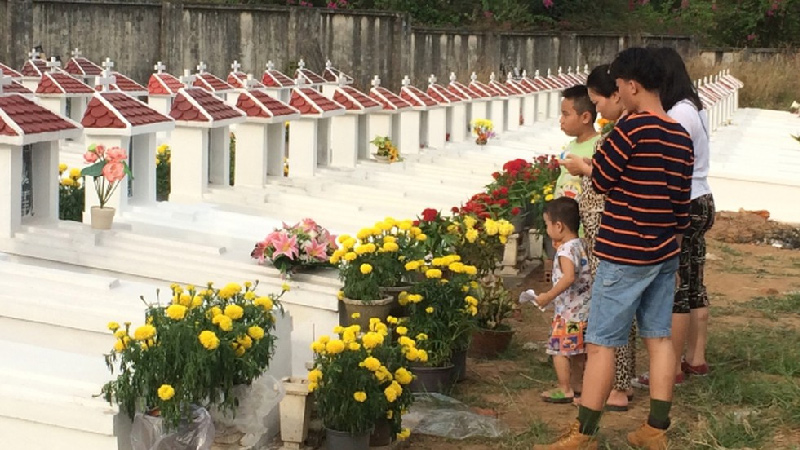 Things to Keep in Mind During the Qingming Festival
Things to Keep in Mind During the Qingming Festival
Things to Avoid During the Qingming Festival:
-
When visiting tombs during the Qingming Festival, it is important to be mindful of certain taboos to avoid bad luck. These include:
-
Avoid stepping on or kicking over the offerings at other people’s tombs, as this can bring misfortune, especially for children and young adults.
-
Women who are menstruating, pregnant, or suffering from joint pain or a cold should refrain from visiting tombs due to the cold and negative energy associated with the site.
-
Although it is common for families to take photographs during the Qingming Festival to commemorate the occasion, it is advisable to refrain from taking pictures in cemeteries out of respect for the deceased.
-
When cleaning and tidying up the tomb area, ensure that you clean both the front and back thoroughly and inspect the tomb for any signs of rodent or reptile intrusion.
-
Avoid pointing or gossiping about other people’s tombs to prevent bad luck and show respect for the deceased.
Things to Do During the Qingming Festival:
-
Pay respects to your ancestors’ tombs, expressing your gratitude and reverence for their legacy.
-
Clean and tidy up the ancestral altar and your home to create a welcoming environment for your ancestors’ spirits.
-
Perform rituals and make offerings at the tomb and at home, demonstrating your piety and respect for your ancestors.
For more information: Things to Do and Avoid During the Qingming Festival for a Prosperous Year
6 Prayers for the Qingming Festival
Prayers for the Qingming Festival at the Tomb
Offerings for the Qingming Festival typically include: Incense, candles, betel leaves and areca nuts, ceremonial paper money, alcohol, meat (pork knuckles, boiled chicken, or a slice of lean pork sausage), and fruits.
I bow to the Nine Heavens, the Ten Directions, and the Buddhas of the Ten Directions.
I respectfully bow to the spirits of my ancestors… (name of the deceased)
Today is the … day of the … month.
On the occasion of the … Festival.
Your faithful descendant (state your name) …
Residing at: …
Along with my entire family, I humbly stand before your grave, holding offerings of betel leaves, areca nuts, incense, flowers, tea, fruits, and paper money.
I respectfully invite your spirit to return and accept these humble offerings.
With utmost sincerity, I proceed to repair and reinforce your tomb, adding soil and stones to ensure its stability. May the Buddhas and deities bless and protect me, and may the Earth God and the spirits of the land witness my devotion. May my actions bring peace to your soul and blessings to my family.
I vow to accumulate virtues, cultivate goodness, and perform charitable deeds, such as helping orphans and widows, providing relief to those in need, and honoring my family and ancestors. May these acts of kindness bring blessings to my family and honor to my ancestors.
I humbly beseech your spirit to witness and accept these offerings, bestowing blessings and protection upon my family. May you ward off disasters and bring prosperity, guiding us on the path of virtue and good fortune. May the elderly in my family enjoy good health, and may the young flourish under your blessings.
My offerings may be simple, but they are presented with the utmost sincerity. I humbly beseech your spirit to witness and accept them.
After the prayer, wait until about two-thirds of the incense has burned, then proceed to thank the spirits, burn the paper offerings, collect blessings, and return home to perform rituals for the household and ancestral gods.
Prayers for the Qingming Festival at Home
Depending on family traditions, you may prepare a full altar with sticky rice, boiled chicken, sausages, bamboo shoots soup, stir-fried glass noodles, and other dishes, or you may simply burn incense and offer fresh fruits, tea, and cigarettes to inform your ancestors of the Qingming Festival.
The head of the family should dress respectfully and stand before the ancestral altar, lighting incense and candles, and then reciting the following prayer:
Homage to Amitabha Buddha!
Homage to Amitabha Buddha!
Homage to Amitabha Buddha!
I bow to the Nine Heavens, the Ten Directions, and the Buddhas of the Ten Directions.
I bow to my ancestors, the patriarchs and matriarchs of my family, and all my relatives on both sides.
I bow to the guardian spirits of my house, Mr. Red and Mrs. Red.


























